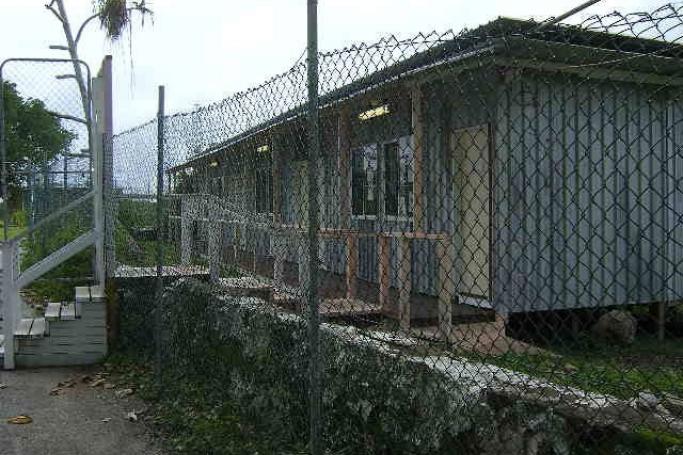Australian lawyers and human rights activists have said that the Australian government’s funding for its Nauru detention facility currently stands at more than double that of the UNHCR’s budget for South East Asia in 2015 and should be reallocated.
During an October 2014 senate enquiry an official from the Department of Immigration and Border Protection revealed that $469,094,000, for the 2014-15 financial year, was allocated toan Australian backed Nauru detention facility.
Daniel Webb from the Human Rights Law Centre in Melbourne told Mizzima:
“Instead of using costly and cruel measures to stop the boats, Australia should be working with the UN and transit countries to address why people get on them in the first place,”
UNHCR’s budget for 2015 sits as $US 157 million covering; Bangladesh, Indonesia, Malaysia, Myanmar, Philippines, Thailand, Thailand’s “regional” office and Vietnam.
“Offshore processing does not relieve Australia of its responsibilities toward those asylum-seekers who are transferred, and the obligation is on both States to ensure that protection is effectively granted,” says Vivian Tan a spokesperson from UNHCR in Thailand.
Mr. Webb said that Australia should work with transit countries to “improve conditions and legal protections for asylum seekers in their territories” while also supporting the UN to process claims quickly and fairly.
“[Australia should] take our fair share of refugees processed through this system and encourage other nations with capacity to follow our lead,” he added.
A fact check report from the Australian Broadcasting Corporation reviewed the claims of Mr. Webb and other lawyers who had made similar claims which stated that the government’s offshore processing funds could be better spent on programs in countries of origin of those seeking resettlement in Australia.
“Instead of a policy of deterrence, UNHCR has long promoted cooperative approaches that build on and complement effective national asylum procedures as a way of helping refugees, asylum-seekers and stateless persons find viable protection options other than through dangerous and exploitative journeys,” says Ms. Tan.
The government has also begun cutting down on its yearly aid budget in Regional East Asia from $AUD85million in 2014-15 financial year to $AUD51million in the 2015-16 financial years.
Aid groups fear that the loss of funding over the coming years may severely disadvantage those in need. Cost cutting methods from the government have been looked into, the Minister for Department of Foreign Affairs and Trade, Julie Bishop said that medicine could be delivered through Coca-Cola’s supply chain instead of relying solely on aid groups.
“By working constructively with the UN and our neighbours, we can develop safe pathways to protection for refugees who need to seek it. We can save lives at sea without punishing survivorism,” said Mr. Webb.
Australia’s past and present immigration policy has been strict and full of turmoil withone situation leading to accusations from Indonesia claiming that, past and present Australian government’s, had paid people smugglers upwards of $US10,000to return to Indonesia.
Photos of the large bribes surfaced in Australian media with Indonesian police officers confirming these reports. This story failed to gain large traction or research as both major parties were accused of partaking in the act.
A political staffer to former Prime-Minister John Howard - who begun the war on asylum seekers in a post-9/11 Australia - told Crikey news, “The problem with this issue is people don’t care how the government stops the boats, as long as they do.”
Recent history of Australia and the boat crises
The first incidence of extreme measures taken against asylum seekers seeking shelter was in August 2001 in the “Tampa Affair” where Australian troops instructed Captain Rinnan of the Norwegian container ship, Tampa, to remove his ship and its refugees from Australian waters - he refused.
The Australian government then asked Indonesia to offer asylum for the refugees, they refused, as did Norway. Norway then reported Australia to the UNHCR and the International Maritime Organisation for alleged failure to obey its duties under international law.
After the event settled, the 438 Afghani and Hazara refugees were moved into two detention camps on Nauru before they and their families, who were in Afghanistan, were given asylum in New Zealand.
Australia then passed a bill on August 29 known as the “Border Protection Bill 2001” which allowed the government to tow back any boat in it’s territorial waters along with other harsh measures such as;
“To provide that any person who was on the ship may be forcibly returned to the ship,”
“. . . that no civil or criminal proceedings may be taken against the Australian government or any of its officers for removing the ship or returning people to it,”
“. . . and that no asylum applications may be made by people on board the ship.”
This event sowed the seeds to Australia’s current harsh measures promulgated bythe “Operation Sovereign Borders” concept which was introduced by the recent Abbott government.
Australian government’s offshore program reckless: human rights lawyers
14 July 2015
Australian government’s offshore program reckless: human rights lawyers












